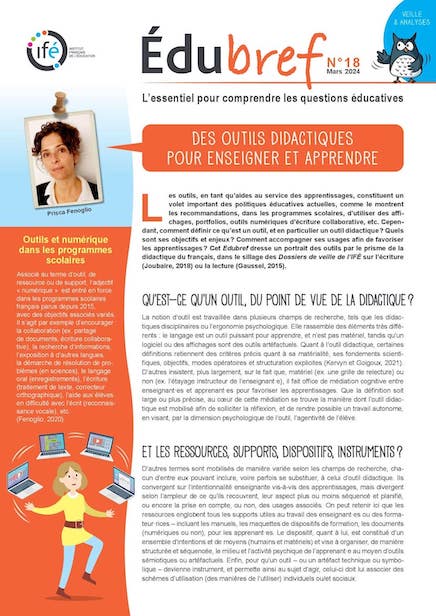ICSEI virtual congress 2021 - International Congress for School Effectiveness and Improvement - Crossing Boundaries and Building Bridges
Date : du 08-03-2021 au 18-03-2021
Appel à communications ouvert jusqu'au : 25-11-2020
Lieu : à distance
Modalité : intégralement à distance
Organisation :
ICSEI International Board
Programme :
Le congrès ICSEI 2021 est organisé entièrement en ligne. Les rassemblements synchrones se tiennent en deux temps : les 8, 9, 17 et 18 mars 2021.
-----
ICSEI is a global community collaborating for enhanced quality and equity in education, related to educational and school effectiveness and improvement. To improve the quality and equity of education at a global scale, it is important to cross multiple borders and boundaries. Discussion and debate are crucial in crossing these borders and boundaries to be able to improve education for all students.
We need to critically engage with new and innovative ideas if we want to make our educational organizations more effective, especially in the light of the pandemic we are facing. What policies need to be in place to support quality and equity, and the wellbeing of our students? How does policy influence educational practice? What are urgent questions from educators that researchers need to address? How can educators learn from research, and researchers learn from practice? It is the aim of this conference to cross these boundaries to collaboratively improve education around the world. Bridges need to be built: among different stakeholders (e.g., parents, students, teachers, school leaders), different roles (e.g., researchers, policy makers, and practitioners), and different geographies (e.g., the North, South, East and West). We can all learn from one another.
We welcome you to join us in this innovative conference designed to foster participation, collaboration and engagement across geographic boundaries as well as different professional roles and perspectives.
ICSEI Network Sub-themes
Crisis Response in Education Network: Reimaging learning in response to the pandemic
The Crisis Response in Education Network (CREN) is a new ICSEI network dedicated to exploring how educational systems respond to significant crises and how crises impact on education systems, learning, health and wellbeing of practitioners, children, young people and their families. CREN has committed to focusing on COVID-19 for the next two years. The themes we wish to explore in this congress are how education systems, schools, other educational organisations and their partners have been affected by the pandemic, how they have responded, and how they can adapt successfully in the future. We welcome proposals in the following areas:
- What has the short, medium and longer-term impact of the COVID-19 pandemic on learners and their families?
- How have education systems around the world responded to the COVID-19 pandemic?
- What new ways of working have emerged during the COVID-19 pandemic? How have these supported or hindered the quality of education provided by educational systems?
Data Use Network: Connecting educational practices with students’ diverse needs
The issue of educational equity has become increasingly important during the COVID19 pandemic. Questions of evaluation, instructional practice, and student grouping have always been present in educational research, but they have become utterly important during this crisis. How can we build bridges between teachers and students when there is no physical teaching in schools? How can we understand educational needs of socially vulnerable groups when we cannot bring them to school? How can we assess the progress of students and educational outcomes during home schooling? Data-based decision making (DBDM) has shown to strengthen the fairness and equity of assessment and can help teachers to tailor instruction to individual needs. Further, data use has shown to help interrupt intuitive judgment leading to, for example, self-fulfilling prophecies. We welcome proposals that address these areas:
- How can the use of data help teachers and schools to assess educational needs?
- How can data use help teachers and schools to tailor education to diverse needs?
- How can we use data and evidence to strengthen evaluation and assessment in these challenging times?
We want to build bridges by connecting international good practices, by connecting individual and collective perspectives on data use, and by exploring teacher judgement from different perspectives.
Early Childhood Education and Care Network: Crossing boundaries in the field of early years and childhood.
Maintaining educational equity and quality in the early years has become increasingly important during COVID19 as lock down has disrupted how children are educated and by whom. During the pandemic, attainment gaps between different groups of children have widened further with a resultant need to effectively tackle ‘learning loss’. The Early Childhood Education and Care Network is interested in proposals which will contribute to an ongoing discussion on bridging the gap between early education policy, research and practice, in particular:
- What are the opportunities and challenges to effective learning posed by COVID-19? How has the situation in ECEC during different stages of lockdown been evaluated, and what lessons can be learned from the evaluations?
- How can equitable learning environments be provided for all children in ECEC during the pandemic?
- What is the role of formal and informal learning on child development and well-being, and what do we know about how to ensure quality learning environments for young children?
- What are effective practices to build/enhance collaboration among key education stakeholders in order to reduce learning loss and promote equitable outcomes for young learners?
- How can professional collaboration in ECEC/collaboration between ECEC and primary schools be sustained during times of COVID-19?
Educational Leadership Network: Reimagining the global leadership agenda
The COVID 19 pandemic has exposed problems in education systems around the world. Some of these challenges have been similar across countries, other challenges have been context-specific. Moreover, some challenges to educational leadership have received more attention than others in the international discourse. Therefore, the Educational Leadership Network wants to ask to what extent the discourse on leadership in general, and specifically within the context of the challenges of the COVID 19 pandemic, has taken account of a broader diversity of experiences and voices, particularly from historically underrepresented groups. We want to explore leadership practices responding to and reflecting on the pandemic experience, and establish what we know already, what we need to know, and what voices we need to hear in order to meaningfully and authentically cross boundaries and build bridges between leaders across the world. We welcome proposals that address these areas:
- To what extent and in what ways has the discourse on leadership changed?
- How are education leaders taking into account diverse experiences and voices?
- How have leadership practices changed during the pandemic experience?
- What do we need to know and whose voices do we need to hear to cross boundaries and build bridges globally?
3P Network for Policymakers, Politicians, and Practitioners: Connecting different voices to rethink education
Reflecting on the future of schooling and on educational models that foster well-being and the development of key skills in the new generations has become even more important with the Covid-19 pandemic. The health emergency has forced us to question established practices and habits, but it has also offered the opportunity to reflect on what really matters for learning. The 3P network aims to listen to and involve various stakeholders on the subject of rethinking education: students and parents, school leaders and teachers, middle tiers, academics and experts in education policies. We are interested in proposals concerning:
- Educational policies adopted by policy makers in different countries. To what extent have these policies been effective? What is missing?
- Programmes, projects or activities offered by the middle tiers to support schools, school leaders and teachers. What elements of these programmes—developed in specific contexts—could be of inspiration for other contexts?
- Students and parents’ views. What are their expectations and demands? How might their voices be heard by policy makers, politicians and professionals?
- Social equity issues, moral and ethical dilemmas faced by practitioners. Teaching methodologies, organizational and technical solutions implemented by teachers and school leaders. What answers are emerging? Which methodologies and solutions are best suited to specific contexts or school levels?
- The rapid spread of digital technologies for education for all. To what extent are the different levels of the school system able to exercise conscious control over digital technologies?
Methods of Researching Educational Effectiveness and Improvement MoR∑) Network: Building bridges in research development and execution during COVID-19 times
The COVID-19 pandemic is a global crisis which reveals challenges and suggests the necessity of breaking barriers, more than ever before, to tackle anticipated consequences of ‘learning loss’. MoREI network is interested in proposals which will contribute to an ongoing discussion on bridging the gap between research, policy and practice during COVID-19 times.
- How do the policies at government and institutional levels affect the scope, scale and methods of social science research in these challenging times?
- What are the opportunities and challenges encountered in carrying on with research of school effectiveness and improvement in your education context during the pandemic?
- Which are some good practices to build/enhance interaction with key education stakeholders to make research with an impact on the ground?
- What can different communities and stakeholders (researchers, practitioners and policy makers) do to reduce research ‘learning loss’ in the current context?
The Professional Learning Networks Network: Crossing boundaries and building bridges for sustainable impact
Professional Learning Networks (PLNs) provide a way of helping schools and practitioners work effectively both within and beyond times of crisis. Recent developments have presented many challenges for existing PLNs: at the same time new incentives for collaboration (and hence new PLNs), new modes of working together, and new opportunities for data collection and use have also arisen.
Key, though, is understanding how PLNs can sustain and endure, ensuring their effectiveness is long-lasting and its positive impact is maximal. We welcome contributions in relation to the following areas:
- How are boundaries crossed and bridges built in PLNS to support educators in tackling issues of pressing concern?
- What policy conditions are required to ensure PLNs sustain?
- What is the role of school leadership in sustaining PLNs?
- In what ways do/have PLNs formed to help teachers deal with pressing concerns?
- How are new ideas mobilised to help educators deal with key issues of practice and need?
-----
Keynote speakers
Dr. Beatriz Pont has worked on education policy reforms and school leadership internationally throughout her career. At the OECD Directorate for Education and Skills, she has launched and leads OECD countries schools policy education change and implementation support, and has worked with individual countries in their school improvement reform efforts. She also launched and led a comparative series on education reforms Education Policy Outlook, on school leadership, equity and quality in education and adult learning.
Eva Kyndt (PhD Educational Sciences) is an associate professor in human resource development and management at the Centre for the New Workforce (Swinburne University of Technology, Melbourne, Australia) and Department for Training and Education Sciences (University of Antwerp, Belgium). The common thread in her research is the attention of the intersection between learning and working. She has a profound interest in sustainable careers and focuses on lifelong learning and wellbeing of (prospective) employees. Her research interests include preparing graduates for sustainable careers, social networks in organisations, wellbeing at work and workplace learning.
Pak Tee Ng [National Institute of Education (NIE), Nanyang Technological University] is a Singaporean educator who is deeply involved in the development of school and teacher leaders. At the NIE, he previously served as Associate Dean Leadership Learning and Head of the Policy and Leadership Studies Academic Group. His main work is in educational change, policy and leadership.
Pasi Sahlberg is a Professor of Education Policy and research director at the Gonski Institute, University of New South Wales in Sydney. He is a Finnish educator who has worked as schoolteacher, teacher educator, researcher, and policymaker in Finland and has advised national education reforms around the world. Pasi has held senior education expert posts in World Bank and European Commission, and leadership positions in the Finnish Government.
Peter Tymms, PhD, is emeritus Professor of Education at Durham University, UK. He has published more than 100 scientific articles and his main research interests are monitoring, assessment, Rasch measurement, performance indicators, ADHD, reading and research methodology.
Nikita Pate is currently the Senior Mistress for A-Levels working with The City School network of schools. This school system has 160+ schools operating within Pakistan and some other countries in South Asia and is considered to be one of the best school systems in Pakistan.
Cynthia E. Coburn is Professor at the School of Education and Social Policy, Northwestern University. Coburn studies the relationship between instructional policy and teachers’ classroom practices in urban schools, the dynamics of school district policy making, and the relationship between research and practice for school improvement.
URL : http://2021.icsei.net
• résumés : https://www.conftool.com/.../sessions.php
Les résumés de l'ensemble des contributions sont accessibles en naviguant dans le programme détaillé.
mot(s) clé(s) : politiques éducatives, recherche en éducation














